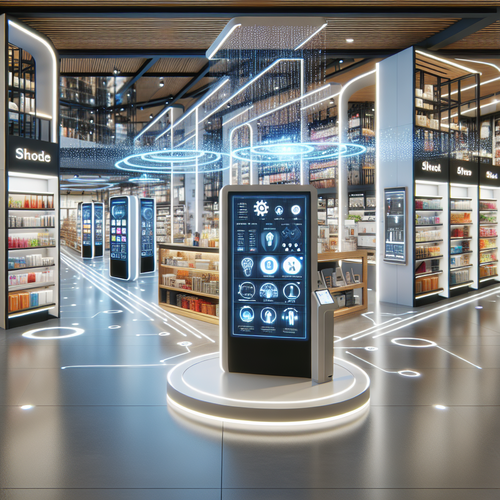
Revolutionizing Retail: The Role of AI in Shopping
Revolutionizing Retail: The Role of AI in Shopping
The retail landscape is undergoing a significant transformation thanks to advancements in artificial intelligence (AI) technologies. As consumers increasingly demand personalized and efficient shopping experiences, retailers face the challenge of adapting to these expectations. In this article, we explore the various ways AI is shaping the future of shopping.
Understanding AI in Retail
Artificial Intelligence encompasses a range of technologies that enable machines to analyze and interpret data, learn from experiences, and make decisions. In retail, AI applications can enhance customer engagement, streamline operations, and provide insightful data analysis.
Enhancing Customer Experiences with AI
- Personalization: AI algorithms analyze customer data to provide tailored product recommendations, improving the shopping experience.
- Chatbots: AI-powered chatbots assist customers in real-time, answering questions and guiding them through the buying process.
- Visual Search: Shoppers can upload images to find similar products, enhancing their interaction with the store.
Streamlining Retail Operations
AI also plays a crucial role in optimizing various operational aspects in retail:
- Inventory Management: Predictive analytics help retailers maintain optimal stock levels by analyzing sales data and trends.
- Dynamic Pricing: AI can adjust prices based on demand, competitor pricing, and market conditions.
- Fraud Detection: Machine learning algorithms identify unusual patterns in transactions, helping to prevent fraudulent activities.
Case Studies: AI in Action
Several well-known retailers have successfully integrated AI technology into their operations:
- Amazon: With its recommendation engine, Amazon personalizes the shopping experience, resulting in a substantial increase in sales.
- Walmart: The retail giant uses AI to optimize supply chain logistics and improve inventory management through real-time data analytics.
- Sephora: By offering virtual try-on features and personalized product suggestions via its mobile app, Sephora significantly enhances customer engagement.
Challenges of Implementing AI in Retail
While the benefits are clear, retailers must overcome several challenges:
- Data Security: Protecting customer data is paramount, and breaches can severely damage a retailer’s reputation.
- Integration Complexity: Incorporating AI solutions into existing systems can be technologically demanding and resource-intensive.
- Consumer Trust: Building trust among customers regarding AI technologies is essential, especially concerning data use and privacy.
Future Trends in AI and Retail
The future of retail will be intricately linked to the advancements in AI technologies. As customer expectations evolve, retailers must continue to innovate. Key trends to watch include:
- Increased Automation: Automated checkouts and personalized shopping assistants powered by AI will become standard.
- Hyper-Personalization: Future AI systems will offer even more granular personalization based on a broader set of consumer behaviors.
- Augmented Reality: AI-powered AR tools will enhance the shopping experience by allowing consumers to visualize products in their own environment.
For more insights on technological impacts in various sectors, check out our post on Exploring the Impact of AI on E-commerce Trends.













